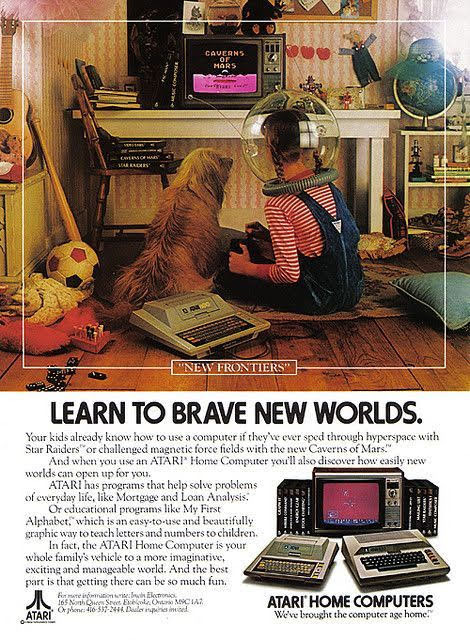#home computer
Explore tagged Tumblr posts
Text

THIS is what an 80s home computer should look like. Anyways have this messy doodle where all my nerve damage shakiness shows . Bye
#electric dreams#edgar electric dreams#objectum#electric dreams 1984#cutie#lil tummy#oouhghj…#80s#home computer#computer#my art
336 notes
·
View notes
Text

Sony HitBit HB-101 (1984)
The HB-101 is part of the MSX standard, a unified home computer architecture developed by Microsoft and ASCII Corporation.
- CPU: Zilog Z80, running at 3.58 MHz
- RAM: 64 KB
- Video: Video Display Processor (VDP) with a maximum resolution of 256 x 192 pixels, supporting up to 16 colors
- Sound: Programmable Sound Generator (PSG) for audio
#sony#sony corporation#hitbit#retro computers#1980s#80s#design#msx#retrocomputing#retrocomputer#retro tech#zilog#home computer
741 notes
·
View notes
Text
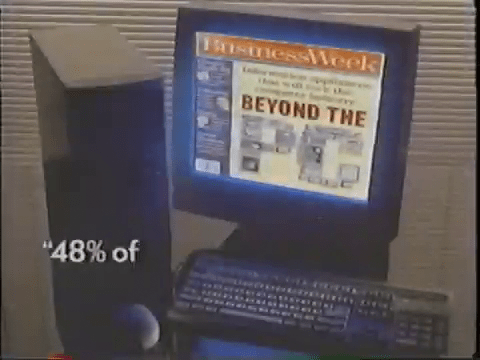
435 notes
·
View notes
Text
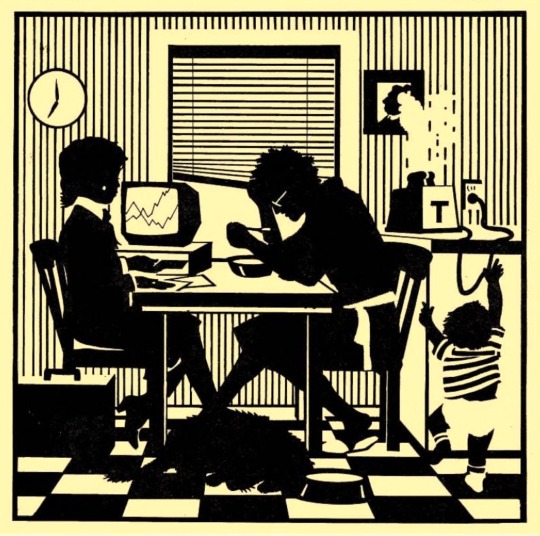
Energy Magazine (1985)
135 notes
·
View notes
Text



camarada_sudamericana, /carl-w-heindl, and in-the-clouds
13 notes
·
View notes
Text
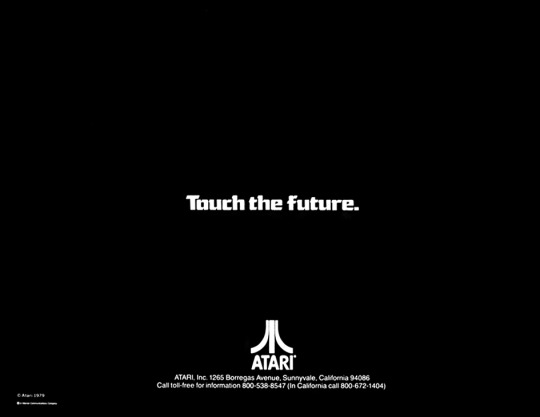
Touch the future. Atari computer ad - 1979.
#vintage advertising#atari#atari computers#atari 400#atari 800#8-bit home computers#atari 8-bit computers#vintage electronics#vintage computers#vintage computing#the 70s#1979#home computer
22 notes
·
View notes
Text

8 notes
·
View notes
Text

Odd monitor shape 🤨
105 notes
·
View notes
Text

Episode 77 – Walking… no.. Driving On The Moon!
Greetings, and welcome to Episode 77! In this one, Brian reviews another arcade, breaks down a top ten list, and finishes up with a breakdown on Moon Patrol!
If you would like to contact the show, you can send an email at [email protected] or you can leave a voicemail for the show at 734-623-0832, just make sure to state which show you’re calling for.
You can fine the podcast wherever you listen to them. Spotify, Apple Podcasts, and iHeart Radio just to name a few. RSS Feed: https://anchor.fm/s/4481fd0/podcast/rss
The show also has a Facebook page, and is also on Instagram, Threads, Bluesky, TikTok (when I have videos) and Tumblr. All of these links can be found at https://linktr.ee/arcadeaddictbrian. I am also putting the back catalog on Youtube as well, a little bit at a time. Just search for arcadeaddictbrian or the podcast, and you will find them!
You can help the show by leaving a five-star review wherever you listen to it, which helps other people find it. If you want to help the show directly, go to https://podcasters.spotify.com/pod/show/coaa and click on the Donate button. For as little as a dollar a month, you can help the show develop further as a podcast, as I use those funds for things directly related to the show (buying podcasting and streaming equipment, and funding arcade runs to new locations to review). My deepest thanks to Kevin Hoffman and Benjamin Broedel for their continuing support! Without your help, I would not be in the position I’m in!
Now, for those who wish to donate and cannot do so through Spotify, I have a ko-fi page. Ko-fi.com/arcadeaddictbrian
I’m streaming live on Twitch. Twitch.tv/arcadeaddictbrian. If you’re a listener to the show, please do me a solid and drop me a follow over there. That helps grow the stream, and who knows, maybe I might become a big-time streamer! A guy can hope, right??
Discord server under the GamerNation Productions brand coming soon!
Hope to hear from you soon, and good gaming out there!
#podcast#spotify podcast#confessions of an arcade addict podcast#classic video games#video game arcades#arcade review#barcade#detroit#michigan#top tens#basketball games#home computer#consoles#are you experienced?#moon patrol#irem#williams#1982
0 notes
Photo
Post #313: Computer Magazine, BYTE, 5/1982.
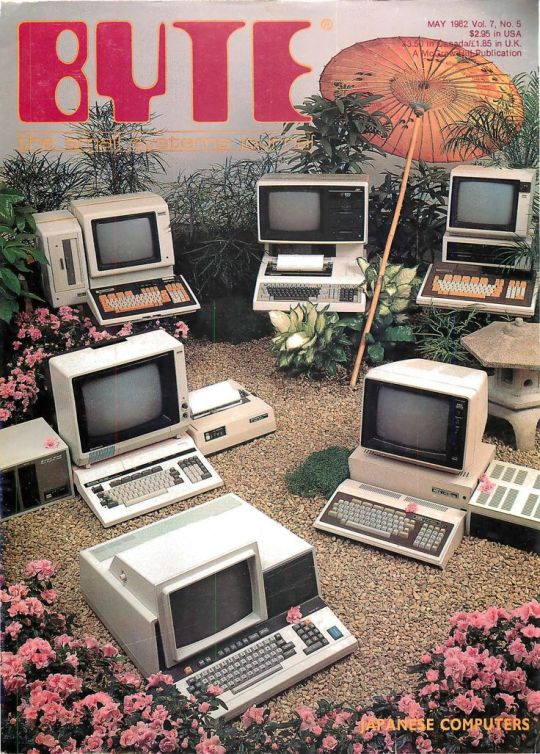
#computer#technology#retro tech#vintage tech#retro computing#computer magazine#home computer#personal computer
12K notes
·
View notes
Text

"Atari's 'Energy Czar' for the Atari 800 home computer situates players in the throes of managing a burgeoning energy crisis, tasking them with balancing the energy needs of a population against the backdrop of limited resources and environmental concerns. This game, steeped in the realities of economic and ecological challenges, opens the door to exploration of economic theories and the dire consequences of resource depletion. By delving into the insights of Thomas Malthus, John Maynard Keynes, Joseph Schumpeter, and Nicholas Georgescu-Roegen, this analysis unpacks the game’s profound implications on economic decision-making in the face of crisis.
Starting with Thomas Malthus's perspectives on population growth and resource consumption provides a foundational understanding of the challenges presented in 'Energy Czar.' Malthus theorized that population growth would inevitably outpace agricultural production, leading to widespread scarcity and hardship. In the game, players experience this Malthusian dilemma firsthand as they strive to allocate energy resources efficiently while the demand from an ever-growing population intensifies. This setting not only simulates the practical application of Malthusian economics but also paints a bleak picture of the relentless struggle against the limits of growth, setting a thematic stage for further economic exploration.
Transitioning from Malthusian economics to Keynesian economic theory, John Maynard Keynes’s ideas on government intervention in markets to manage demand provide another layer of complexity in managing the energy crisis in 'Energy Czar.' Keynes advocated for active policy measures to stabilize economic cycles and mitigate the impacts of booms and busts. Players acting as policy makers must employ Keynesian strategies to stimulate or curb energy consumption to avoid catastrophic shortages or surpluses. However, the game's context challenges players with the limitations of these interventions, reflecting Keynes's own concerns about the long-term viability of controlling complex economic systems.
Building on the limitations of Keynesian interventions, Joseph Schumpeter’s concept of 'creative destruction' adds depth to the economic dynamics within 'Energy Czar.' Schumpeter argued that capitalist economic development arises through a process of continuous innovation and the subsequent destruction of older economic structures. In the game, players must not only manage existing energy resources but also innovate to develop new technologies, which may render old methods obsolete. This process, while potentially beneficial in the long run, introduces immediate disruptions and hardships, emphasizing the dual-edged nature of technological progress in economic systems.
Finally, incorporating Nicholas Georgescu-Roegen’s insights on entropy and the economic process provides a critical view on the sustainability of economic practices portrayed in 'Energy Czar.' Georgescu-Roegen, a pioneer in ecological economics, argued that economic activity is invariably tied to physical processes that increase entropy, leading to irreversible consumption of energy resources. His perspective casts a shadow over the game’s energy management challenges, highlighting the inexorable degradation of valuable resources and the potential for an ultimate decline in economic viability. Players are confronted with the grim reality that every decision made in the game might contribute to a larger, irreversible trajectory towards ecological and economic decay.
To conclude, 'Energy Czar' is not just a simulation game; it is a profound, nihilistic exploration into the economic theories governing resource management and the potential catastrophes of mismanagement. By engaging with the perspectives of Malthus, Keynes, Schumpeter, and Georgescu-Roegen, the game serves as a stark meditation on the economic and existential challenges of sustaining human civilization in the face of finite resources. It challenges players to confront the harsh realities of economic decision-making and its significant impacts on the world, encouraging a deep reflection on the precarious balance between growth, innovation, and sustainability.
1 note
·
View note
Text

OG // 2024
0 notes
Text
Post #337: Radio Shack, Computer Advertisment, The Biggest Name In Little Computers, TRS-80 Color Computer, 2024.

TRS-80 Color Computer
"Practical Advice from Isaac Asimov" (Video Games #1, Aug. 1982)
341 notes
·
View notes
Text
This is a subject that really interests me because I (28 years old) had computer classes in grade school where learning how to efficiently type was a big focus. As a result I have a very high WPM (words per minute) count and am an excellent touch typer.
However, I've heard that they started phasing out computer classes in a lot of schools because it's assumed that kids/teenagers already know how to use a computer in this day and age. But smartphones are more popular than computers now, and as result a lot of Gen Z/Gen Alpha kids are able to text very quickly but their typing skills aren't as good.
#I'm terrible at texting because I grew up with computers and didn't get a smartphone until I was like 15#plus I prefer to be on my laptop when I'm at home#if the message is too long I literally text people through my computer instead of using my phone#because it would take FOREVER for me to text it#poll#my polls#technology#typing#computers#tumblr polls#1k#5k#10k#most popular
16K notes
·
View notes
